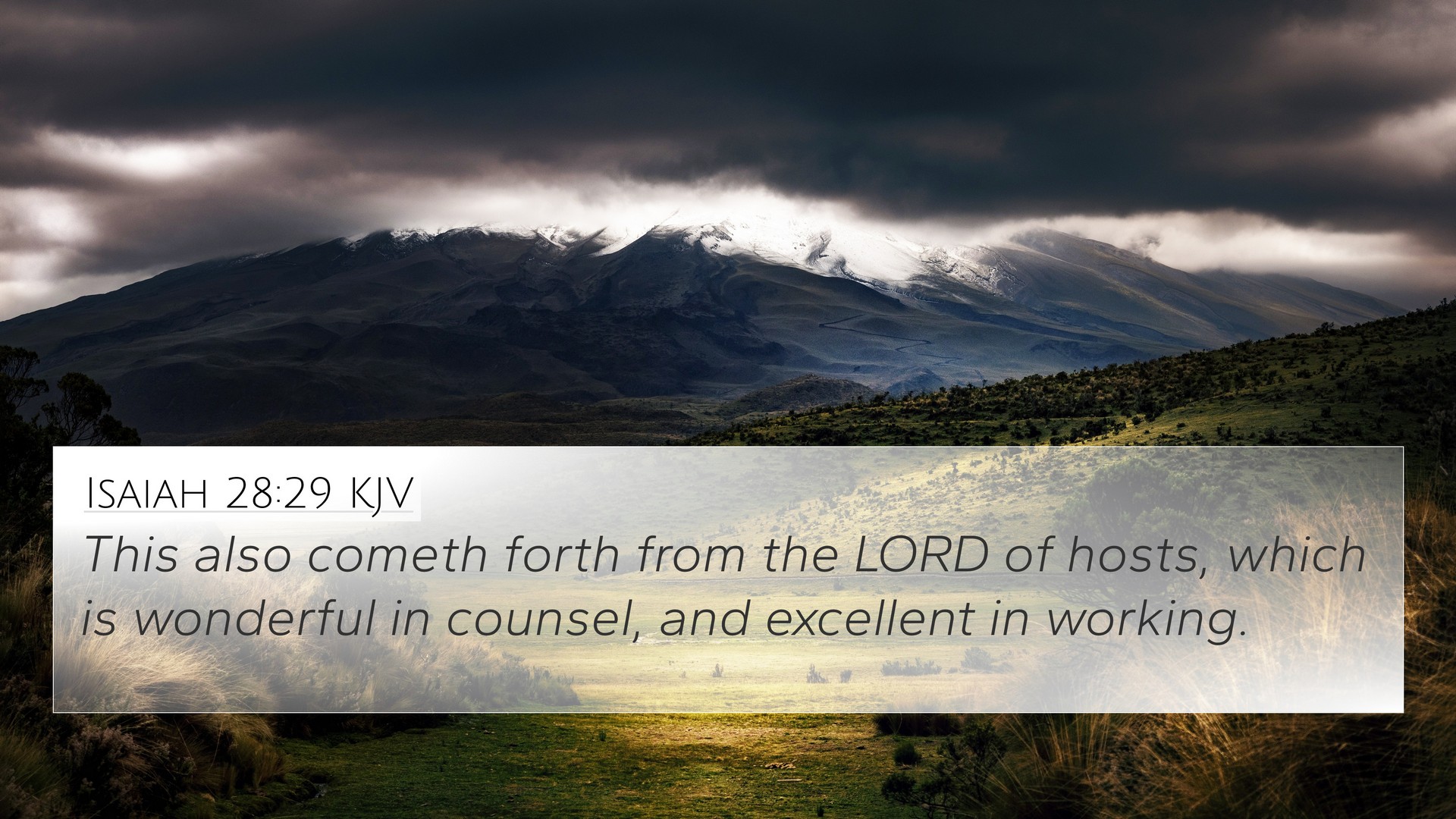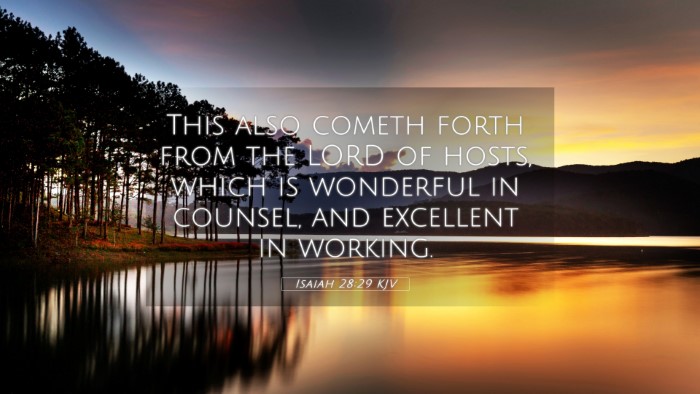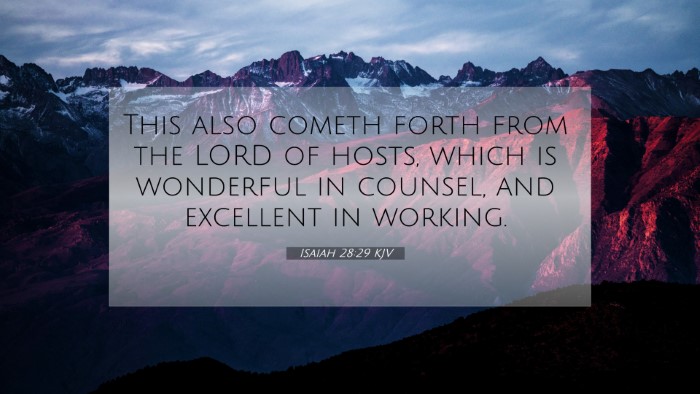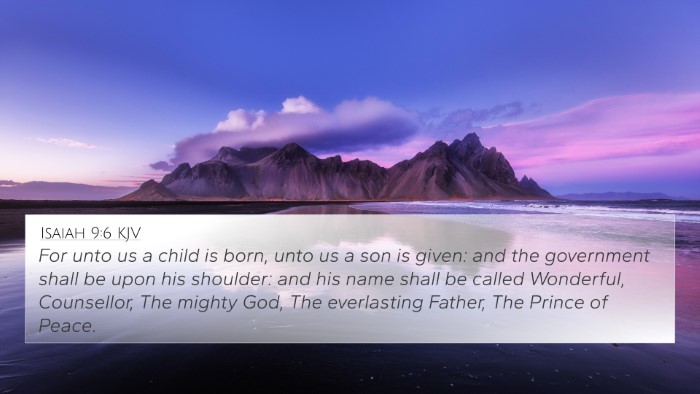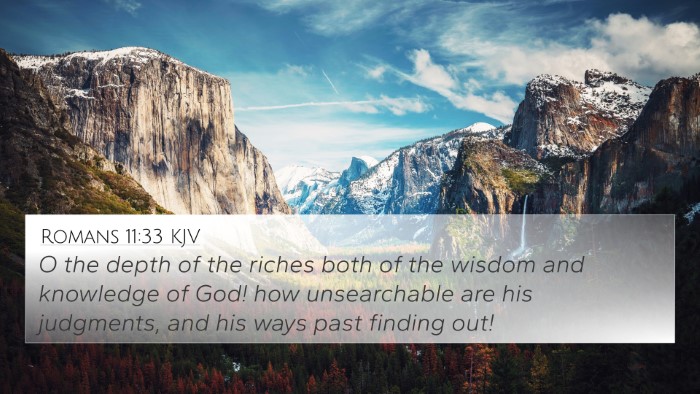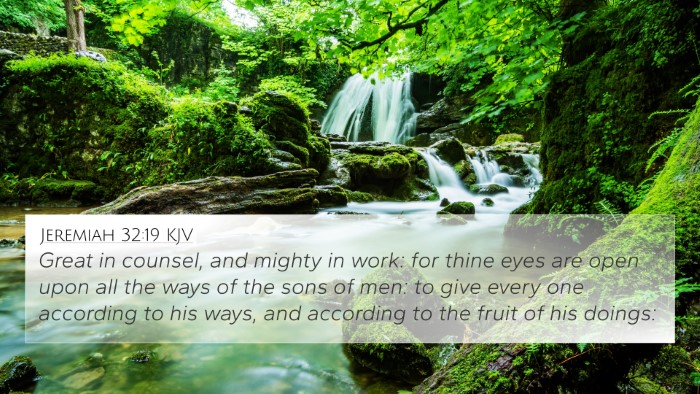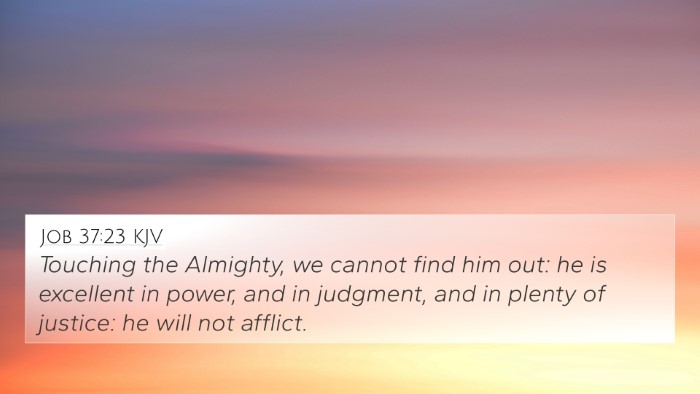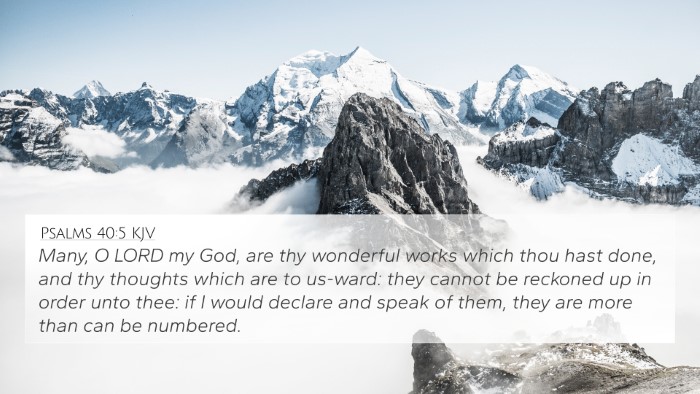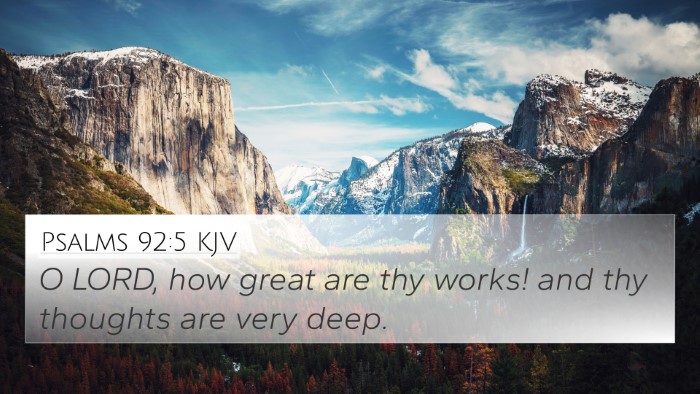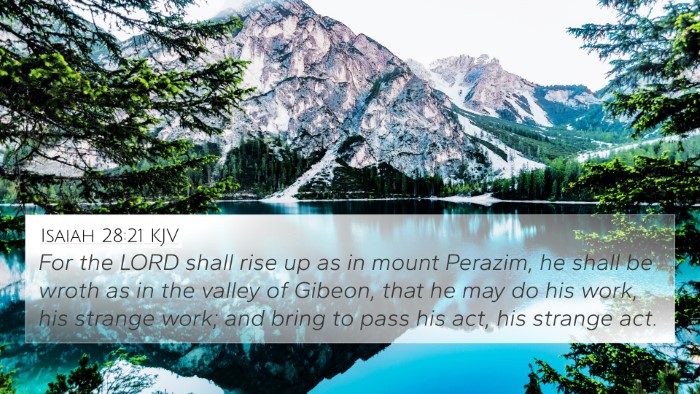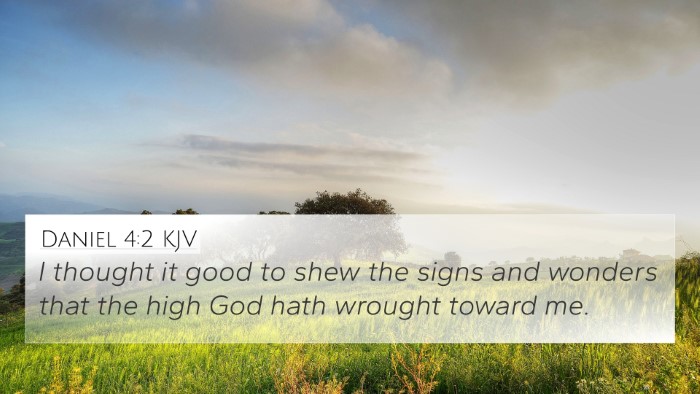Understanding Isaiah 28:29
Verse Text: "This also comes from the Lord of hosts; he is wonderful in counsel and excellent in wisdom." (Isaiah 28:29, ESV)
Meaning and Interpretation
The verse Isaiah 28:29 emphasizes the profound understanding and wisdom of God, presented in the context of judgment upon Israel and the establishment of His plans. It reflects the certainty that all wisdom originates from God, who intricately designs the order of the universe and the happenings within it.
Commentary Insights
- Matthew Henry:
Matthew Henry highlights God's sovereignty and omniscience, explaining how the wisdom of God is manifested in every aspect of creation. He asserts that the verse serves as a reminder of God's ability to deliver counsel that is beyond human comprehension, urging believers to rely on divine wisdom.
- Albert Barnes:
Albert Barnes focuses on the "wonderful in counsel" phrase, arguing that God’s plans may often seem inscrutable but are indeed perfect. He proposes that this verse serves as a reassurance that even in trials, God's knowledge and intentions are always for the betterment of His people.
- Adam Clarke:
Adam Clarke interprets the 'wisdom' in the verse as a testament to how God orchestrates events for His divine purpose. He emphasizes that this wisdom is not only present in judgment but also in the manifestation of grace and mercy. Clarke encourages readers to trust in God's wisdom instead of leaning on their own understanding.
Cross-References
This verse connects with various other biblical passages that illustrate the divine wisdom and counsel of God:
- Proverbs 3:5-6: "Trust in the Lord with all your heart, and do not lean on your own understanding." - This emphasizes the necessity of relying on God's wisdom.
- Isaiah 40:28: "Have you not known? Have you not heard? The Lord is the everlasting God, the Creator of the ends of the earth." - This illustrates God's unmatched wisdom and power.
- James 1:5: "If any of you lacks wisdom, let him ask of God, who gives to all liberally and without reproach, and it will be given to him." - Here, the exhortation to seek wisdom from God is echoed.
- Jeremiah 10:12: "He has made the earth by His power; He has established the world by His wisdom and has stretched out the heavens by His discretion." - This shows God's wisdom in creation.
- Romans 11:33: "Oh, the depth of the riches both of the wisdom and knowledge of God!" - Acknowledgment of the incomprehensible nature of God's wisdom.
- 1 Corinthians 1:25: "For the foolishness of God is wiser than men, and the weakness of God is stronger than men." - Highlights God's superior wisdom compared to humanity.
- Proverbs 2:6: "For the Lord gives wisdom; from His mouth come knowledge and understanding." - Further emphasizes God as the source of wisdom.
Thematic Connections
The verse from Isaiah can be viewed in a wider theological context, encompassing themes of divine sovereignty, the nature of wisdom, and the relationship between God and humanity:
- Sovereignty of God: A central theme in Scripture is the absolute sovereignty of God over all creation. Isaiah 28:29 assures us that His plans will always prevail.
- Human Wisdom vs. Divine Wisdom: The contrast between earthly wisdom, which is often flawed, and God’s perfect wisdom is consistently presented throughout the Bible.
- Faith in God’s Plans: This verse encourages believers to have faith in God’s wisdom, especially during challenging times, reflecting the confidence expressed in other scriptural texts.
Practical Application
As believers, the insights from Isaiah 28:29 lead us to seek God's wisdom in our decisions and life circumstances. It calls us to:
- Engage in prayer and supplication, asking for divine guidance when faced with uncertainty.
- Trust in the Lord’s purposes and plans, even when they are not immediately understandable.
- Reflect on past experiences where God’s guidance has proven wise and faithful.
Conclusion
Isaiah 28:29 serves as a powerful reminder of God’s infinite wisdom and understanding. It is a call to appreciate His divine counsel and to trust in His plans. Such reflections and applications further enrich our understanding of Scripture and enhance our study through tools for Bible cross-referencing, allowing us to see the interconnectedness within God’s written word.
